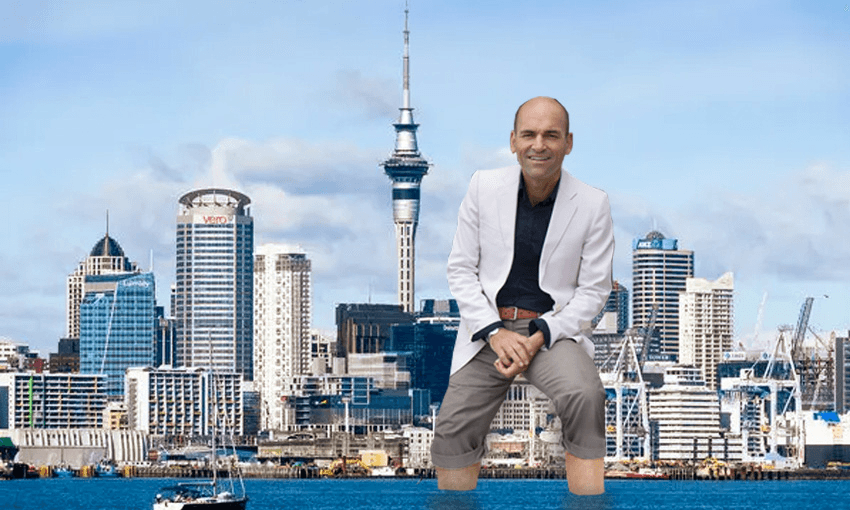For Auckland is a Spinoff podcast of civic conversations with people working to create and sustain a better Auckland for all. In episode eight policy analyst Owen Gill outlines his vision for Auckland and how we can get there.
Auckland in 2019 is in the same moment as Los Angeles was in 1945 and what we do now will define our future, says Owen Gill. And as we build to a city populated by millions, we better learn their lessons and fast.
In his new book, Turning Point Auckland, Gill says we must learn from what went wrong in California to ensure a better Auckland, or live their crises ourselves. Gill wrote the book to excite interest and debate in our upcoming local body election.
In this episode of the For Auckland podcast, the former banker and “public policy guy” lays out his plan for Auckland, which centres on a few key issues: democratic reform, Auckland Council revenue and cost management and major changes to regulation and oversight of Auckland development.
Listen to Owen Gill on For Auckland on the player below, subscribe on iTunes, or download this episode (right click and save). For Auckland is brought to you by the Committee for Auckland and produced by The Spinoff.
Gill puts numbers on the challenges facing Auckland, saying the city has a $3 billion funding shortfall. One he wants to be addressed by selling assets, namely carparks, airport shares, and golf courses. This reflects Gill’s belief that private interests, not councils should run business. But he wants the business of running council capped and then linked to inflation.
Democratically, Gill wants around half the city’s councillors elected region-wide and five councillors receive portfolios with decision-making power and dedicated officials that mirror central government. He wants a commercial deal struck with the central government that commits taxpayers to fund Auckland’s infrastructure.
On regulation of development, Gill suggests a break for Auckland from national standards and creation of an Auckland-driven Urban Development Authority focused on housing and transport to deliver the infrastructure for a population of two million. This would involve pushing aside existing controls and laws, and replacing the Resource Management Act with an Urban Auckland Act tasked with enabling faster change.
If this conversation is a marker then Owen Gill and his self-published book will achieve his aim of igniting debate around Auckland’s upcoming local body election.
